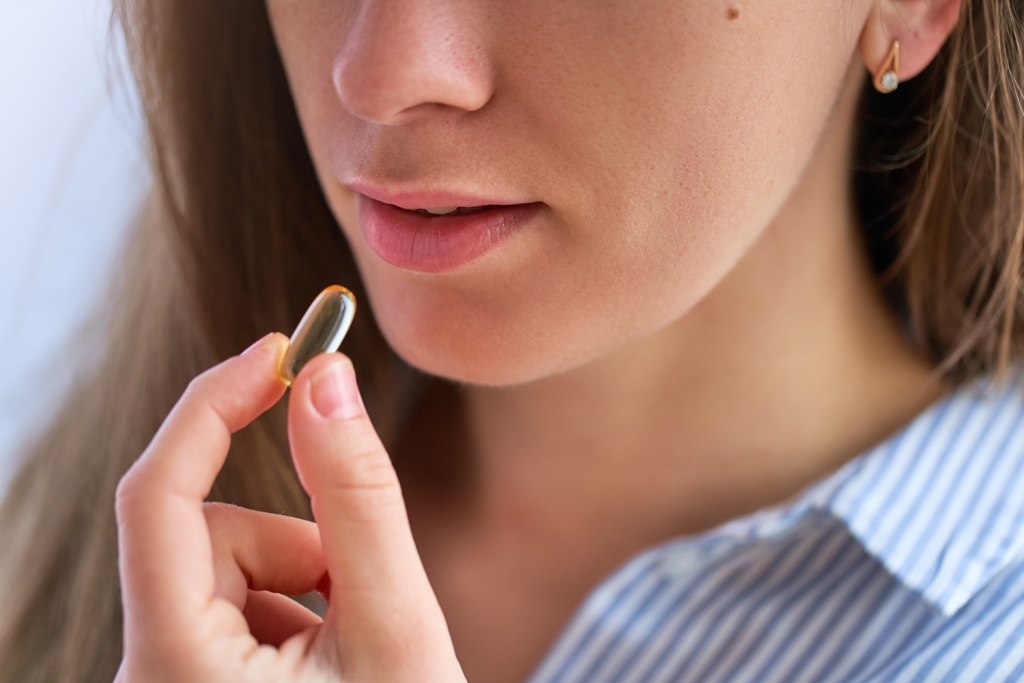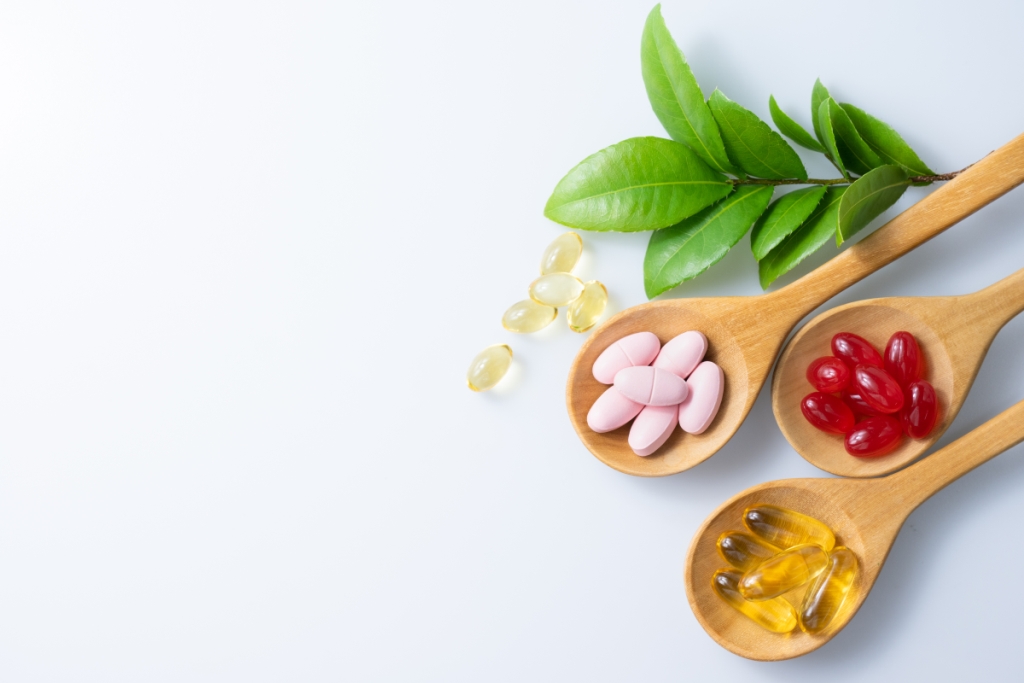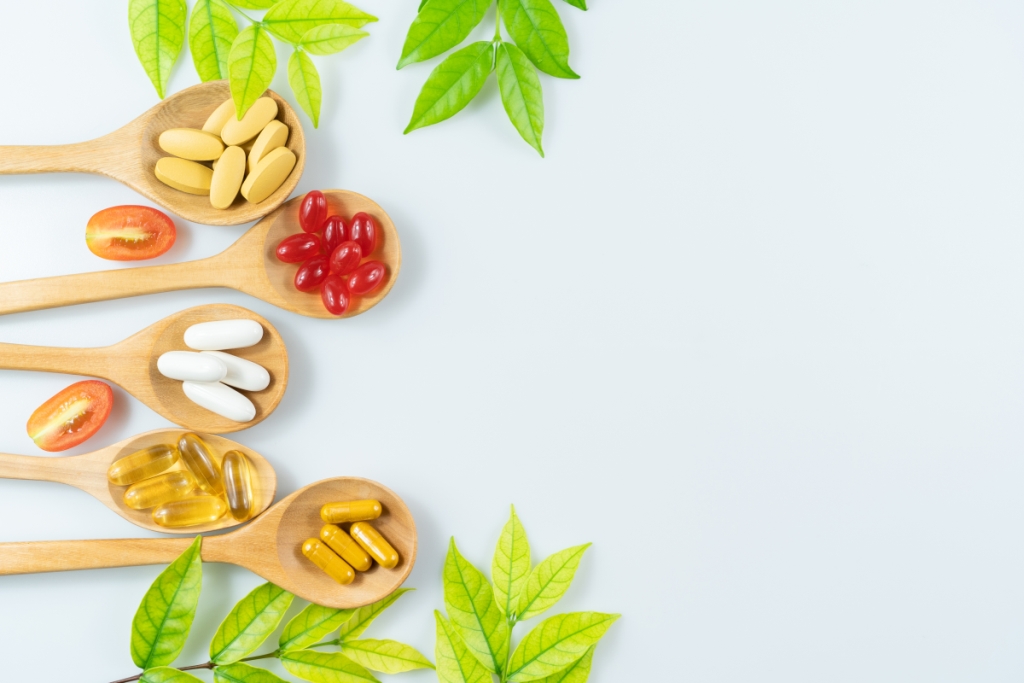The medical world has made it possible to stay healthy naturally
When you hear of the word ‘nutraceuticals’, what would be the first thought that comes to your mind?
Many would assume that it’s a synonym to the word ‘supplements’ but in actual fact, the world of nutraceuticals is much bigger than that!
Intentionally or not, nutraceuticals are already a part of your life. Variations of it can be found in your medicine cabinet, fridge and even your pantry.
What are we talking about? What exactly are nutraceuticals then? Clinical Pharmacologist, Pharmaceutical Physician as well as Nutraceuticals Expert and Advocate, Dr. Anish Desai, shares all about the world of nutraceuticals.

1Twenty80: Could you kindly explain what nutraceuticals are?
Dr. Anish Desai: ‘Nutraceuticals’ is the combination of two words –– ‘nutrient’ and ‘pharmaceutical’. A nutrient is a nourishing component found in food and a pharmaceutical is a medical drug. Nutraceuticals are composed of bioactive ingredients such as vitamins, minerals, fibres, proteins (including enzymes), probiotics (including prebiotics and synbiotics) and amino acids that assist in the prevention and management of diseases including hereditary problems, nutritional disease and allergies. Sources of nutraceuticals include microbial enzymes (such as
hemicellulose-mushroom, lactase -bacteria), plant enzymes (bromelain-pineapple, pectin-cell wall), plant (vitamin C-amla) and fish (omega-3 fatty acid-fish oil).
1Twenty80: How will one be able to identify a nutraceutical product?
Dr. Anish Desai: A nutraceutical product may offer a single nutrient or multiple ingredients together. They may also come in the form of herbal products or be genetically engineered as designer food. Processed foods with added nutrients can also contain nutraceuticals
Many consumers may already have these products in their homes without even realising they are nutraceuticals, such as turmeric, fenugreek, garlic, ginger, green tea and cinnamon.
On the basis of type, nutraceuticals can be segmented as follows:
- Food: Snacks, confectionery products, bakery products, dairy products and infant products. Nutraceutical snacks products mainly include protein-rich snacks, dry nuts, grains, and bars. Other nutraceutical products under the snacks segment include granola bars and other nutritional bars.
- Beverages: Health drinks, energy drinks, and juices.
- Dietary supplements: Tablets, liquid, powder, soft gels, gummies, and chewable products.
1Twenty80: How do nutraceuticals complement a person’s health?
Dr. Anish Desai: Nutraceuticals are used for prevention, as nutrition can have a significant impact on a person’s health. There is an ever-increasing burden of chronic diseases and it is being observed that millennial consumers may prefer nutraceuticals over prescription drugs for combating different disorders including acne, baldness, nail disorders, diabetes and arthritis. The table below mentions the benefit of specific nutraceuticals according to the disease. Due to proven health benefits, lesser side effects associated with medicines, easy access, good compatibility among different age groups, nutraceuticals are being preferred.

1Twenty80: What is the difference between nutraceuticals and pharmaceuticals?
Dr. Anish Desai: Pharmaceuticals are human-made imitation of a natural substance the body needs to fight disease, stay healthy and provide the body with needed ingredients, while nutraceuticals are standardised nutrients.
While the two product types may work together, there are significant differences between them.
Consumers perceive nutraceuticals and pharmaceuticals in two distinctly different ways –– nutraceuticals are viewed as prevention, while pharmaceuticals are viewed as treatment. When consumers use nutraceuticals and pharmaceuticals together, they may be able to sustain or restore their health and recover faster. If consumers are focused on preventing diseases, increasing their intake of nutrients or recovering after an injury illness, a nutraceutical is a good option.
Disease and Nutraceuticals
- Bone health: Vitamin D, calcium, turmeric, resveratrol, omega-3, magnesium, folic acid, vitamin B12, Vitamin B6, lycopene
- Cardiovascular:Flavonoids (onion, black grapes), omega-3 fatty acid
- Constipation: Buckwheat
- Diabetes: Fenugreek, cinnamon, black seed, bitter gourd, omega-3 fatty acid
- Eye health: Lutein, zeaxanthin
- Hyperlipidemia: Probiotics, pycnogenol, chitosan, fibre
- Immunity booster: Vitamin D, zinc, vitamin C, omega-3, glutathione, Turmeric
- Obesity: Chitosan, fenugreek, vitamin C
- Osteoarthritis: Glucosamine, chondroitin, rosehip, devils claw, natural collagen, black seed, olive oil, omega-3 fatty acid
- Skin health: Turmeric, glutathione, vitamin C, Biotin, ubiquitin, coenzyme Q10
- Sleep enhancement: Melatonin, valerine
- Urinary tract infection: Cranberry, hibiscus flower extract, vitamin C, L-lactic acid

1Twenty80: What is the difference between nutraceuticals and pharmaceuticals?
Dr. Anish Desai: Pharmaceuticals are human-made imitation of a natural substance the body needs to fight disease, stay healthy and provide the body with needed ingredients, while nutraceuticals are standardised nutrients.
While the two product types may work together, there are significant differences between them.
Consumers perceive nutraceuticals and pharmaceuticals in two distinctly different ways –– nutraceuticals are viewed as prevention, while pharmaceuticals are viewed as treatment. When consumers use nutraceuticals and pharmaceuticals together, they may be able to sustain or restore their health and recover faster. If consumers are focused on preventing diseases, increasing their intake of nutrients or recovering after an injury illness, a nutraceutical is a good option.
1Twenty80: Could you clarify a misconception that nutraceuticals are only for those who are not keen on consuming medications?
Dr. Anish Desai: As mentioned earlier, we are unknowingly including nutraceuticals in our diet (green tea, chamomile tea, garlic, turmeric and so on.) Nutraceuticals have been shown to elicit health-promoting and preventive effects toward many different pathological conditions, such as diabetes, hypertension, arthritis, obesity and allergy. Rising awareness about fitness and health has encouraged people to lead healthier lifestyles thus further increasing the demand. From physiological to psychological health, nutraceuticals have the potential to not only treat a wide array of illnesses but also boost energy, relieve anxiety, improve overall health, slow down aging and enhance sleep quality.
Evidence suggests that nutraceuticals have an important role in the prevention of severe COVID-19 infection. Nutraceuticals can ‘amplify the body’s defence system’ against the virus due to their immune-boosting potential. The main nutraceuticals that are under evaluation for their potential preventive and treatment application are zinc, vitamin C, vitamin D, selenium, glutathione, curcumin and omega-3 fatty acid.

Quote: Pharmaceuticals are human- made imitation of a natural substance the body needs to fight disease, stay healthy and provide the body with needed ingredients, while nutraceuticals are standardised nutrients.
1Twenty80: Some may question if nutraceuticals are safe, could you clarify this?
Dr. Anish Desai: The nutraceuticals industry is following the pharmaceutical industry in several areas including, quality, regulations, labeling and packaging. It is important to maintain required quality standards for efficacy, safety, toxicity, stability and amount of bioactive constituents.
People with long-term chronic diseases such as diabetes, arthritis, joint pain and obesity may prefer nutraceuticals over conventional drugs since they focus on long-term tolerability and safety.
1Twenty80: When would be the ideal time for a person to introduce nutraceutical products into their lifestyle?
Dr. Anish Desai: Nutraceuticals help replenish the body`s micronutrients. Young children with poor nutrition may require nutraceutical supplements for optimum growth. Infant formula, calcium supplements, fortified cereals and juices are all nutraceutical products. Thus nutraceuticals are actually being introduced very early in life and continue to be used
in older age. Nutraceuticals are available in several forms, like tablets, capsules, gummies, purified extracts and even beverages, thus making them easy to use by all age groups. Gummies are catching up as an option and maybe a good alternative for people having difficulty swallowing tablets and capsules. Different nutraceuticals are available in the form of gummies and are widely accepted by children.

1Twenty80: Lastly, could you give us a glimpse of how the world of nutraceuticals is evolving over the years?
Dr. Anish Desai: On the global level, the nutraceuticals market is expected to grow by a CAGR of almost 9 percent during 2020 to 2024. Dietary supplements alone constitute almost 65 percent of the nutraceutical market and are growing at a fast rate of 17 percent attributable to the focus on preventive health in the current pandemic. Data from the Drug Marketing and Manufacturing Association (DMMA) indicates that there is a strong demand for dietary supplements from the upper and middle class, thus the consumption of nutraceuticals level is expected to rise in the coming months.
The evolving consumer behavior including changing lifestyle and increasing awareness are the main consumer- related behaviors transforming the nutraceutical market. The pandemic has given a further boost to the nutraceutical industry, with a focus on prevention and general well-being.












